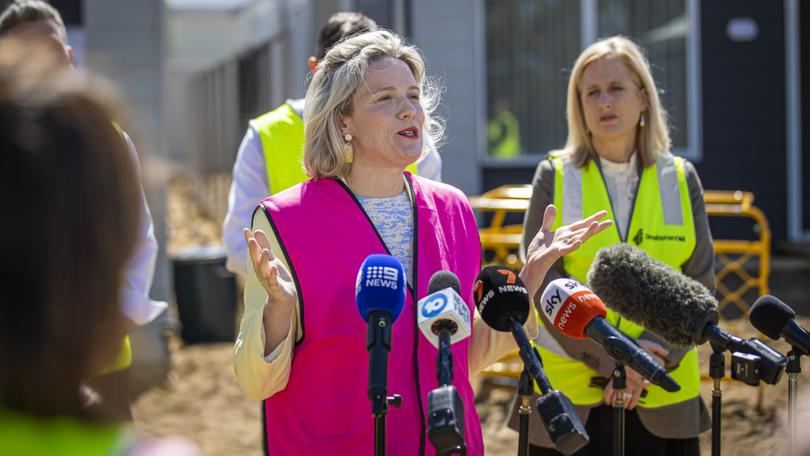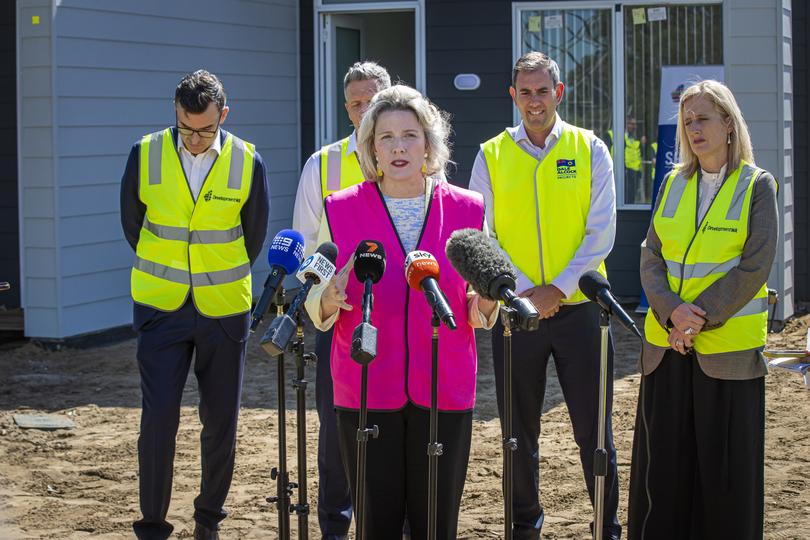Housing cash flows amid Senate fight over more help for buyers

More than 13,700 social and affordable homes will be built, and the first release of money from the Federal Government’s signature housing fund will be given to states this week.
The allocation of the inaugural funding from the Housing Australia Future Fund and National Housing Accord coincides with a political fight over the rest of Anthony Albanese’s housing plan.
The money will go towards building 4200 social homes and 9522 affordable homes nationwide.
Sign up to The Nightly's newsletters.
Get the first look at the digital newspaper, curated daily stories and breaking headlines delivered to your inbox.
By continuing you agree to our Terms and Privacy Policy.It is anticipated construction will start on about 5500 of these before the end of June.
The split of how many are in each State will be announced on Monday, but the government says the announcement unlocks $9.2 billion in funding across the Commonwealth, States and Territories, and private and community housing sectors, on average of about $670,000 per home.
Housing Minister Clare O’Neil said it signalled the Commonwealth was back in the game.
“It shows the Coalition’s utter disregard for housing that in just the first round of this program, Labor is supporting more social and affordable homes than the Coalition did in their entire nine years in office,” she said.
“We want to reduce the stress of housing for Australians – the long waits on housing lists, the long queues for rentals, the out-of-reach deposit for first home buyers – we’ll reduce these issues if we build more houses, and that’s what these projects do.”

The Prime Minister, who grew up in social housing, said he knew how important having a roof over your head was.
“The first round of funding under our Housing Australia Future Fund will deliver thousands of social and affordable homes across Australia for those that need it most,” Mr Albanese said.
Also on Monday, the Senate is slated to debate bills for the shared equity Help to Buy scheme and to offer tax breaks to developers taking part in build-to-rent schemes.
So far, neither the Coalition nor the Greens back the bills, meaning there is no pathway for them to pass.
Greens housing spokesman Max Chandler-Mather said the Government had not engaged in good faith negotiations or come up with any offers on the minor party’s key asks in exchange for support.
These include leading the States to cap rent increases, dumping negative gearing and capital gains tax breaks, and setting up a government-owned property developer to build houses directly.
But a Government source said attempts to negotiate with the Greens over the two pieces of legislation had amounted to being told repeatedly what the demands were and that it was up to Labor to make it work.
The Coalition has been similarly disengaged from negotiations, the source said.
Despite this, the Government hopes to get both sets of legislation to a vote during this week’s Senate sitting.
Ms O’Neil said it was no surprise the Opposition was blocking Help to Buy because “they block everything”.
“What is surprising is that the Greens are blocking it too. It’s surprising because their 2022 election platform called for a shared equity program – which is exactly what this is,” she said.
“We’re calling on the Greens to work with us to pass this legislation that will help 40,000 people like nurses, teachers, and early childhood educators into their first home – especially those without access to the bank of mum and dad.”

